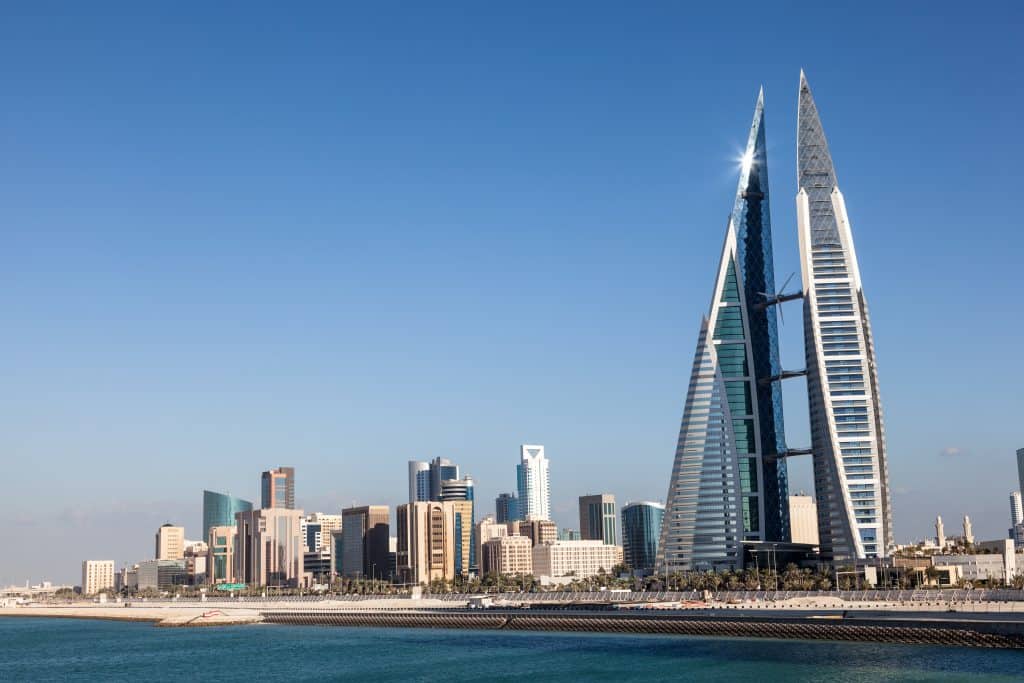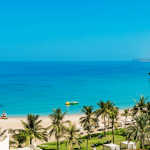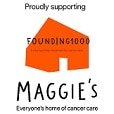GCC: Bahrain Healthcare Sector & Jobs Update 2018
Current Bahrain Healthcare System & Infrastructure
Bahrain’s healthcare system is the oldest in the GCC region with the first modern hospital in the Gulf established in Bahrain in 1903. Today Bahrain is one of the most advanced countries in the GCC region in terms of healthcare provision. Bahrain healthcare practitioners are highly-qualified and hospitals and medical centres are well-equipped. The Ministry of Health’s ‘Health-for-All’ objective was achieved in the early 1990s, where comprehensive health services are provided free to Bahrain nationals and subsidised for non-Bahrain nationals.
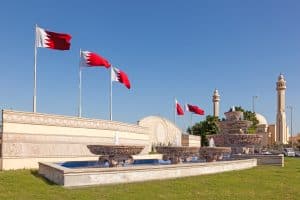 In 2014 total expenditure on health was 6% of GDP. Within the last three decades, there have been major improvements in Bahrain healthcare in terms of infrastructure to create the current modern, technologically-advanced and comprehensive facilities, including 4 state hospitals, 16 private healthcare institutions and a large number of clinics and maternity hospitals. There is high demand for specialised medical services and latest medical surgical procedures such as transplants are already available. Many Bahrain national doctors and nurses have studied aboard and returned to Bahrain to practice in the Bahrain healthcare sector.
In 2014 total expenditure on health was 6% of GDP. Within the last three decades, there have been major improvements in Bahrain healthcare in terms of infrastructure to create the current modern, technologically-advanced and comprehensive facilities, including 4 state hospitals, 16 private healthcare institutions and a large number of clinics and maternity hospitals. There is high demand for specialised medical services and latest medical surgical procedures such as transplants are already available. Many Bahrain national doctors and nurses have studied aboard and returned to Bahrain to practice in the Bahrain healthcare sector.
Current Bahrain Healthcare Issues
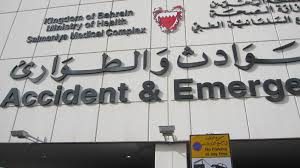 Life expectancy is high in Bahrain, having increased from 60 to years 76 for men and 78 for women in the last 3 decades. The quality of maternal and child health care is also high, reflected in the low infant mortality rate and in the decrease in maternal mortality.
Life expectancy is high in Bahrain, having increased from 60 to years 76 for men and 78 for women in the last 3 decades. The quality of maternal and child health care is also high, reflected in the low infant mortality rate and in the decrease in maternal mortality.
However, as with other GCC countries Bahrain is currently suffering from an obesity epidemic. Due to globalisation, to the rapid increase in living standards, increased consumption of fast-foods and eating out, more sedentary lifestyles almost two-thirds of adults are either overweight or obese. This nutrition transition is causing cause a sharp increase in the incidence of chronic non-communicable diseases such as a cardiovascular disease which now accounts for 32% of all deaths in Bahrain, the number one cause of death in the country, followed by cancer in second place.
Bahrain Healthcare – 2018 Government Priority & Development Plans
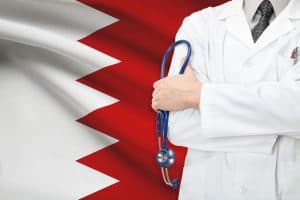 Healthcare continues to be a priority sector for the government of Bahrain in 2018 under the National Health Regulatory Authority (NHRA) which develops policies of the health systems and healthcare in Bahrain, in accordance with the best scientific principles and health standards. An increasing population, increase in life expectancy rate and increase in chronic non-communicable diseases continues to drive further change in Bahrain’s healthcare system under its Health Improvement Strategy (2015- 2018), in line with Bahrain’s Economic Vision of 2030. Historically, the healthcare sector in Bahrain was heavily dependent on government-run facilities and public money, but with new legislation allowing for 100% foreign ownership of private healthcare facilities, coupled with the arrival of a national health insurance scheme, there has been a drive for greater involvement by private sector companies which will further push the development of the sector.
Healthcare continues to be a priority sector for the government of Bahrain in 2018 under the National Health Regulatory Authority (NHRA) which develops policies of the health systems and healthcare in Bahrain, in accordance with the best scientific principles and health standards. An increasing population, increase in life expectancy rate and increase in chronic non-communicable diseases continues to drive further change in Bahrain’s healthcare system under its Health Improvement Strategy (2015- 2018), in line with Bahrain’s Economic Vision of 2030. Historically, the healthcare sector in Bahrain was heavily dependent on government-run facilities and public money, but with new legislation allowing for 100% foreign ownership of private healthcare facilities, coupled with the arrival of a national health insurance scheme, there has been a drive for greater involvement by private sector companies which will further push the development of the sector.
New Bahrain Healthcare Sector Developments & New Jobs
King Abdullah Medical City
Looking to recruit quality healthcare staff in the GCC region?
Contact
Ten Live Group
Award-Winning GCC Healthcare Recruitment Specialists
Healthcare, Education & Training, Energy Oil & Gas, Telecoms, Rail Transportation & Infrastructure, Logistics
T: + 44 1236 702 007
E: info@tenlivegroup.com
